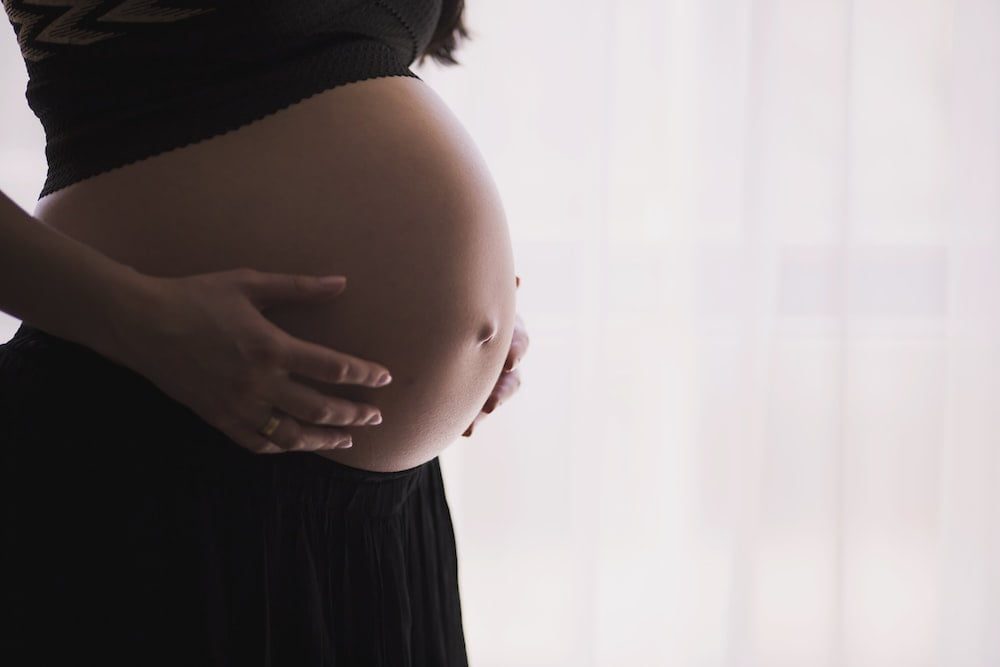6 week pregnancy: Baby development, symptoms and Tips

6 week pregnancy Baby development
At 6 weeks of pregnancy, the baby, also known as the embryo, is about the size of a sweet pea. The baby is still very small and the organs are still in early stages of development, and will continue to develop and mature as the pregnancy progresses.
How big is baby at 6 weeks pregnancy?
At 6 weeks of pregnancy, the baby, also known as the embryo, is about the size of a sweet pea. It measures around 0.2 inches (5 mm) long and weighs about 0.01 oz (0.3g). This measurement is taken from crown to rump (CRL) and it’s important to keep in mind that the baby is still very small and continues to develop and mature as the pregnancy progresses.
Height of the Baby at 6 week pregnancy
At 6 weeks of pregnancy, the baby’s height is not typically measured, as it is still very small, measuring around 0.2 inches (5 mm) long from crown to rump (CRL). The measurement of the baby’s size at this stage is usually described in terms of length rather than height. It’s important to keep in mind that the baby is still in very early stage of development, and it’s size will continue to grow and develop as the pregnancy progresses.
Organ Developments at 6 weeks pregnancy
At 6 weeks of pregnancy, the following organ developments occur:
- Brain: The brain and nervous system continue to develop and the neural tube, which will eventually become the baby’s brain and spinal cord, closes.
- Heart: The heart is now fully formed and is beating at a steady rhythm. The blood vessels and circulatory system also continue to develop.
- Organs: The baby’s organs, such as the liver, kidneys, and lungs, continue to develop and mature.
- Limbs: The baby’s arm and leg buds become more defined, and small swellings appear where the hands and feet will develop.
- Facial features: The baby’s face becomes more defined, with the eyes and ears moving into their proper positions.
- Skeletal system: The baby’s skeletal system begins to form, and cartilage is replaced by bone.
- Placenta: The placenta continues to form and helps to provide the baby with oxygen and nutrients throughout the pregnancy.
- Umbilical cord: The umbilical cord connects the baby to the placenta and supplies nutrients and oxygen.
It’s important to note that the baby’s organs are still in early stages of development and will continue to develop and mature as the pregnancy progresses. Regular prenatal check-ups with your healthcare provider can monitor the baby’s organ development and overall health.
How many Month Pregnant at 6 week pregnancy:
At 6 weeks pregnant, you would be about 1.5 months pregnant. Pregnancy is typically divided into three trimesters, with each trimester lasting approximately 12-13 weeks. Since 6 weeks is roughly half of the first trimester, you would be considered to be 1.5 months pregnant. However, it’s important to note that pregnancy is measured in weeks, not months, and the duration of pregnancy can vary slightly. It’s best to consult your healthcare provider for a more accurate and personalized estimate of your pregnancy timeline.
6 week pregnancy symptoms
At 6 weeks of pregnancy, some common symptoms may include:
- Nausea: Many women experience morning sickness, which can be characterized by feelings of nausea or vomiting.
- Fatigue: Increased levels of the hormone progesterone can cause feelings of fatigue or exhaustion.
- Breast tenderness: Your breasts may feel sore or sensitive to the touch due to hormonal changes.
- Mood swings: Hormonal changes can also cause fluctuations in mood and emotions.
- Bloating: The hormone progesterone can cause abdominal bloating or swelling.
- Constipation: Hormonal changes can also slow down the digestive process, leading to constipation.
- Spotting or cramping: Some women may experience mild spotting or cramping as the fertilized egg implants in the uterus.
It’s important to note that every woman’s pregnancy experience is different and not everyone will experience all of these symptoms. Some women may not have any symptoms at all, while others may have more severe symptoms. Always consult your healthcare provider if you have any concerns or if symptoms become severe.
6 week pregnancy Tips
Here are some tips for a healthy pregnancy at 6 weeks:
- Take prenatal vitamins: Your healthcare provider may recommend taking prenatal vitamins to ensure you are getting enough folic acid and other important nutrients for your baby’s development.
- Eat a healthy diet: Eating a balanced diet that includes fruits, vegetables, whole grains, and lean protein can help support your baby’s growth and development.
- Stay hydrated: Drinking plenty of water can help prevent constipation and other pregnancy-related symptoms.
- Get enough rest: Fatigue and exhaustion are common symptoms during early pregnancy, so make sure to get plenty of rest and take it easy when you can.
- Avoid smoking, alcohol, and drugs: These substances can be harmful to both you and your baby, so it’s important to avoid them during pregnancy.
- Exercise: Regular exercise, as advised by your healthcare provider, is good for your overall health and can help prepare your body for childbirth.
- Keep track of your baby’s development: Regular prenatal check-ups with your healthcare provider can help monitor your baby’s growth and development and ensure that both you and your baby are healthy.
- Maintain healthy habits: Maintaining a healthy lifestyle and avoiding stress can go a long way in ensuring a healthy pregnancy and baby.
It’s important to follow the advice of your healthcare provider and to make sure you are getting enough nutrients, staying hydrated, getting enough rest, and avoiding harmful substances. Regular prenatal check-ups can help ensure that both you and your baby are healthy, and maintaining healthy habits can help support your baby’s growth and development. Remember to consult your healthcare provider for personalized advice and recommendations.
Tags: why is my belly so big at 6 weeks pregnant, 6 weeks pregnant: what to avoid, 6 weeks pregnant ultrasound, 6 weeks pregnant symptoms discharge, 6 weeks pregnant signs of a girl, 6 weeks pregnant signs of a boy, 6 week pregnancy symptoms

